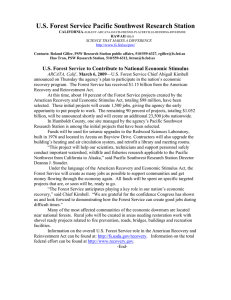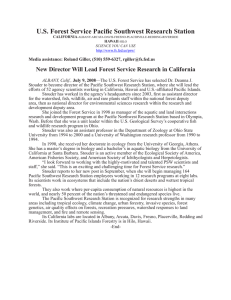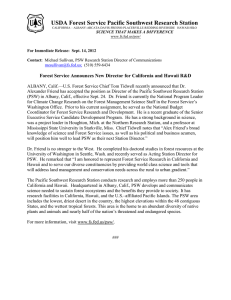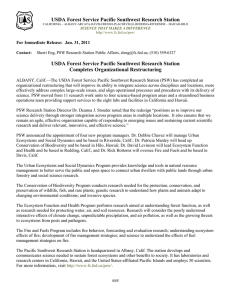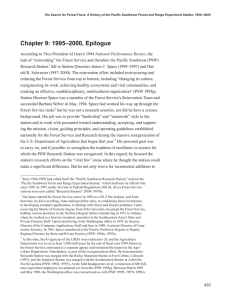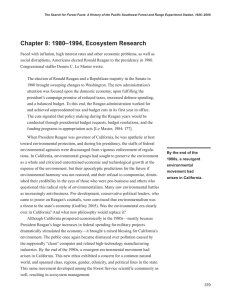USDA Forest Service Pacific Southwest Research Station
advertisement
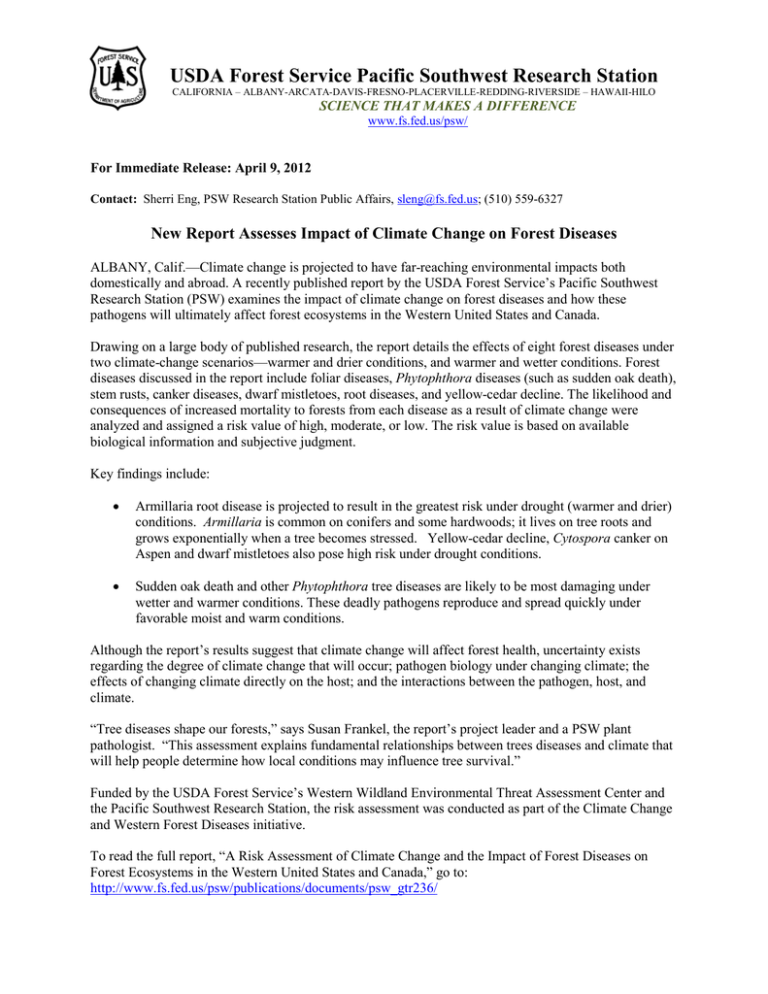
USDA Forest Service Pacific Southwest Research Station CALIFORNIA – ALBANY-ARCATA-DAVIS-FRESNO-PLACERVILLE-REDDING-RIVERSIDE – HAWAII-HILO SCIENCE THAT MAKES A DIFFERENCE www.fs.fed.us/psw/ For Immediate Release: April 9, 2012 Contact: Sherri Eng, PSW Research Station Public Affairs, sleng@fs.fed.us; (510) 559-6327 New Report Assesses Impact of Climate Change on Forest Diseases ALBANY, Calif.—Climate change is projected to have far-reaching environmental impacts both domestically and abroad. A recently published report by the USDA Forest Service’s Pacific Southwest Research Station (PSW) examines the impact of climate change on forest diseases and how these pathogens will ultimately affect forest ecosystems in the Western United States and Canada. Drawing on a large body of published research, the report details the effects of eight forest diseases under two climate-change scenarios—warmer and drier conditions, and warmer and wetter conditions. Forest diseases discussed in the report include foliar diseases, Phytophthora diseases (such as sudden oak death), stem rusts, canker diseases, dwarf mistletoes, root diseases, and yellow-cedar decline. The likelihood and consequences of increased mortality to forests from each disease as a result of climate change were analyzed and assigned a risk value of high, moderate, or low. The risk value is based on available biological information and subjective judgment. Key findings include: • Armillaria root disease is projected to result in the greatest risk under drought (warmer and drier) conditions. Armillaria is common on conifers and some hardwoods; it lives on tree roots and grows exponentially when a tree becomes stressed. Yellow-cedar decline, Cytospora canker on Aspen and dwarf mistletoes also pose high risk under drought conditions. • Sudden oak death and other Phytophthora tree diseases are likely to be most damaging under wetter and warmer conditions. These deadly pathogens reproduce and spread quickly under favorable moist and warm conditions. Although the report’s results suggest that climate change will affect forest health, uncertainty exists regarding the degree of climate change that will occur; pathogen biology under changing climate; the effects of changing climate directly on the host; and the interactions between the pathogen, host, and climate. “Tree diseases shape our forests,” says Susan Frankel, the report’s project leader and a PSW plant pathologist. “This assessment explains fundamental relationships between trees diseases and climate that will help people determine how local conditions may influence tree survival.” Funded by the USDA Forest Service’s Western Wildland Environmental Threat Assessment Center and the Pacific Southwest Research Station, the risk assessment was conducted as part of the Climate Change and Western Forest Diseases initiative. To read the full report, “A Risk Assessment of Climate Change and the Impact of Forest Diseases on Forest Ecosystems in the Western United States and Canada,” go to: http://www.fs.fed.us/psw/publications/documents/psw_gtr236/ Headquartered in Albany, Calif., the Pacific Southwest Research develops and communicates science needed to sustain forest ecosystems and other benefits to society. It has research facilities in California, Hawaii and the U.S.–affiliated Pacific Islands. For more information, visit www.fs.fed.us/psw/. ###
